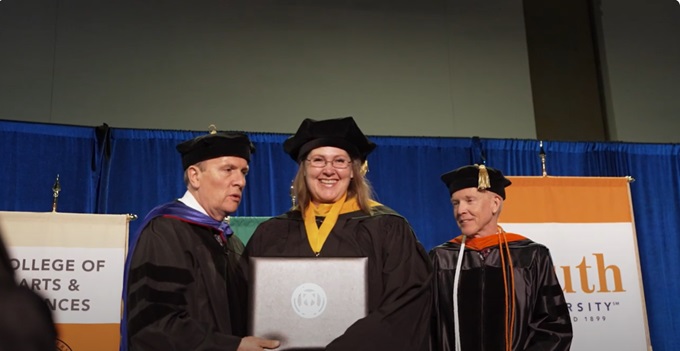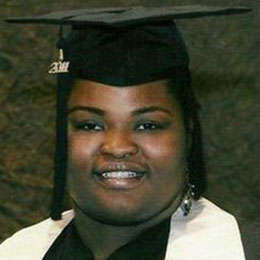Criminal Justice

Request Information
Bachelor of Science in Criminal Justice

A degree in criminal justice can prepare you to seek entry level-positions in the field*. South University’s Bachelor of Science in Criminal Justice program helps improve basic knowledge of the field with criminal justice courses covering topics like response by police, courts, and corrections to crime and violence, ethical concerns, theoretical and applied criminal justice, causes of crime, and the process of adjudicating criminal cases.
Please note: While you may be able to take some general education courses at this campus, all other courses, including specialized courses, will be taken online.
*South University does not promise or guarantee licensure, employment, or salary amounts.
Admission Requirements
General Undergraduate Admission Requirements
Note: Not all Online Program offerings are available to residents of all U.S. states. Please contact an admissions representative for further information.
To be admitted to any of the undergraduate programs at South University, the prospective student must provide proof of high school graduation as recognized by the state of residence on the date the degree was earned, or the equivalent in which a diploma was earned, with a minimum CGPA of 1.5 on a 4.0 scale within 14 calendar days of the start date (refer to Conditional Acceptance). Students providing a GED must meet the minimum required test score deemed as passing in each section as required at the time of testing.
South University accepts the International Baccalaureate Program diploma as meeting the requirement for high school graduation. Credentials earned outside the United States must be evaluated by a NACES or AICE-member credential evaluation service. Please speak with an admissions representative for more information.
Students with less than the minimum CGPA of 1.49 on a 4.0 scale may meet admissions requirements by submitting a minimum combined SAT (Evidence-Based Reading and Writing, and Math) score of 700 or 900 on the SAT requiring an essay portion, a combined ACT score of 18, or meet the criteria established for acceptance as a transfer student.
Students with a CGPA between 1.49 to 1.0 on a 4.0 scale may be admitted provisionally for two quarters. Failure to achieve a 1.5 CGPA in the first two quarters of attendance will result in dismissal. Students may appeal the dismissal by following the Procedures for Appealing Academic/Financial Aid Dismissal Policy.
Students with less than a 1.0 on a 4.0 scale do not meet the admissions requirements for South University.
Acceptable verification of high school graduation or the equivalent would include a high school transcript (official), or GED scores and state-authorized examination scores (ex. HiSET, TASC). In states that maintain a database that serves as an official registry of high school and GED graduates, an excerpt from the official database documenting the student's graduation or GED completion may be used.
Campuses in South Carolina must be provided with official high school transcripts or GED scores.
Please see the policy on GPA Calculation for Admission for additional information
Admission of Transfer Students
Note: Not all Online Program offerings are available to residents of all U.S. states. Please contact an admissions representative for further information.
To be eligible for admission, transfer students must complete the application procedures and satisfy the following criteria:
- Submit a completed application for admission.
- Have earned 24 or more credit hours, or the equivalent (e.g. 16 semester hours), with a cumulative GPA of 1.5 from an acceptable accredited collegiate institution.
- Submit official transcripts (including verifiable faxed transcripts) from all colleges and universities attended.
- Submit self-certification of high school graduation or GED completion.
For transfer of credit practices refer to the applicable section under the Academic Affairs section of this catalog.
To be admitted as a Transfer student into South University the prospective student must have earned 24 or more quarter credit hours or the equivalent (e.g. 16 semester hours), with a cumulative GPA of 1.5 from an acceptable accredited collegiate institution. Official transcripts from the collegiate institution(s) and must be received within 14 calendar days for Undergraduate programs of the start date (refer to Conditional Acceptance). The student will be exempted from taking the UVC1000 Strategies for Success course. Students will select another 4-quarter credit course in consultation with their Academic Advisor or Academic Counselor to fulfill the degree requirements.
Students with 24 or more quarter credits with a CGPA of between 1.49 to 1.0 may be admitted provisionally for two quarters. Failure to achieve a 1.5 GPA in the first two quarters of attendance will result in dismissal. Students may appeal the dismissal by following the Procedures for Appealing Academic/Financial Aid Dismissal Policy.
Students who are citizens of countries other than the United States should refer to the section entitled International Student Admissions Policy.
Students who are transferring from or to a school within the University of North Carolina or the North Carolina Community College System should be aware of the Comprehensive Articulation Agreement approved by both governing Boards on March 1, 1996 and revised in September of 2008. This agreement may be found in its entirety at the following website.
For additional admissions information please see the admissions section here.
Course Requirements
Choose one additional course from the list below:
Choose one additional course from the list below:
Choose one additional course from the list below:
Courses may be selected from this list to apply to Area II Foundation Requirements.
Note(s):
Acceptance into a South University Criminal Justice program or its completion does not imply or guarantee that a student will be able to obtain employment in law enforcement, corrections, probation/parole or related fields. The student should contact the national, state or local agency/institution in which the student intends to gain employment for specific requirements and the application process.
Outcomes
Upon completion of the program, students will be able to:
Utilize theoretical and applied criminal justice approaches to effectively solve a variety of field-based problems.
Recognize the causes of crime and delinquency.
Students will communicate accounting and financial proposals to common business operations through written and oral communication.
Utilize research methodology for scientific reasoning to the study of crime and justice.
Career Outlook
These are some of the career options* you can explore when you have earned your degree:
- Parole Officer
- Bailiff
- Corrections Officer
- Asset Protection Associate/Officer
- Security Guard
*South University does not promise or guarantee licensure, employment, or salary amounts.
What's New
Latest News and Blogs

Feb 18, 2026
PTA Alumni Spotlight: Veteran Leads Home Health Agency
See how South University helped US military veteran Waddie Freeman grow his career in healthcare, from becoming a PTA to running a home health agency.

Feb 17, 2026
The Future of Home Care: Trends and Predictions
Learn what home care trends are driving growth in home health care, including an aging population, new technology, and evolving payment models.

Feb 10, 2026
Popular Degrees for Veterans
Learn what degrees are a common choice for veterans as they set out to achieve their goals and transition smoothly from military member to civilian.

Feb 10, 2026
Assistant Dean Helps Patient Receive Treatment
Karen M. Wilcox, the Assistant Dean of the graduate programs, used her expertise to help one of her patients detect and receive treatment for cancer.

Feb 04, 2026
MSN Alumni Spotlight: From CNA to FNP
Meet South University graduate Charlene Coates and learn how she went from being a certified nursing assistant to becoming a family nurse practitioner.

Feb 03, 2026
Anesthesiologist Assistant Programs: What Makes a CAA Program right for you?
If you want to become a Certified Anesthesiologist Assistant (CAA), choosing a school is a big decision. Find out what to look for in a CAA program.
Fill out the form and a representative will contact you today to better understand your academic goals plus answer any questions you may have.
Campuses offer flexible learning formats* including: on-campus, virtual instructions, and online courses.
*Clinical, practicum, and externship requirements exist in certain programs and require field experiences. Learning formats may not be flexible.
Success! Your request was submitted. We'll be in touch soon!
In the meantime, you can view some of our FAQs.
If you want to talk to an admissions representative ASAP, please contact us at (888) 444-3404.
Outstanding Education for Remarkable Careers
We're committed to helping our graduates make an impact in their professional and personal lives. We applaud our alumni and the difference they make. Check out what some of our Criminal Justice & Legal Studies graduates have to say.





